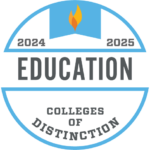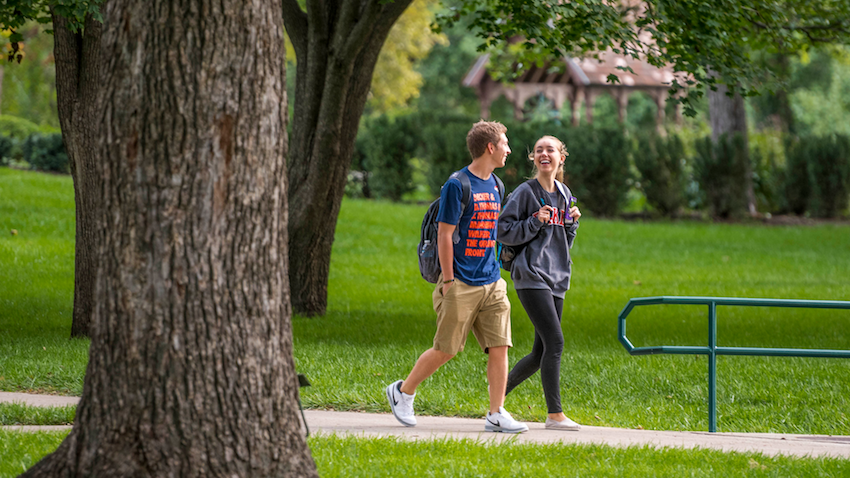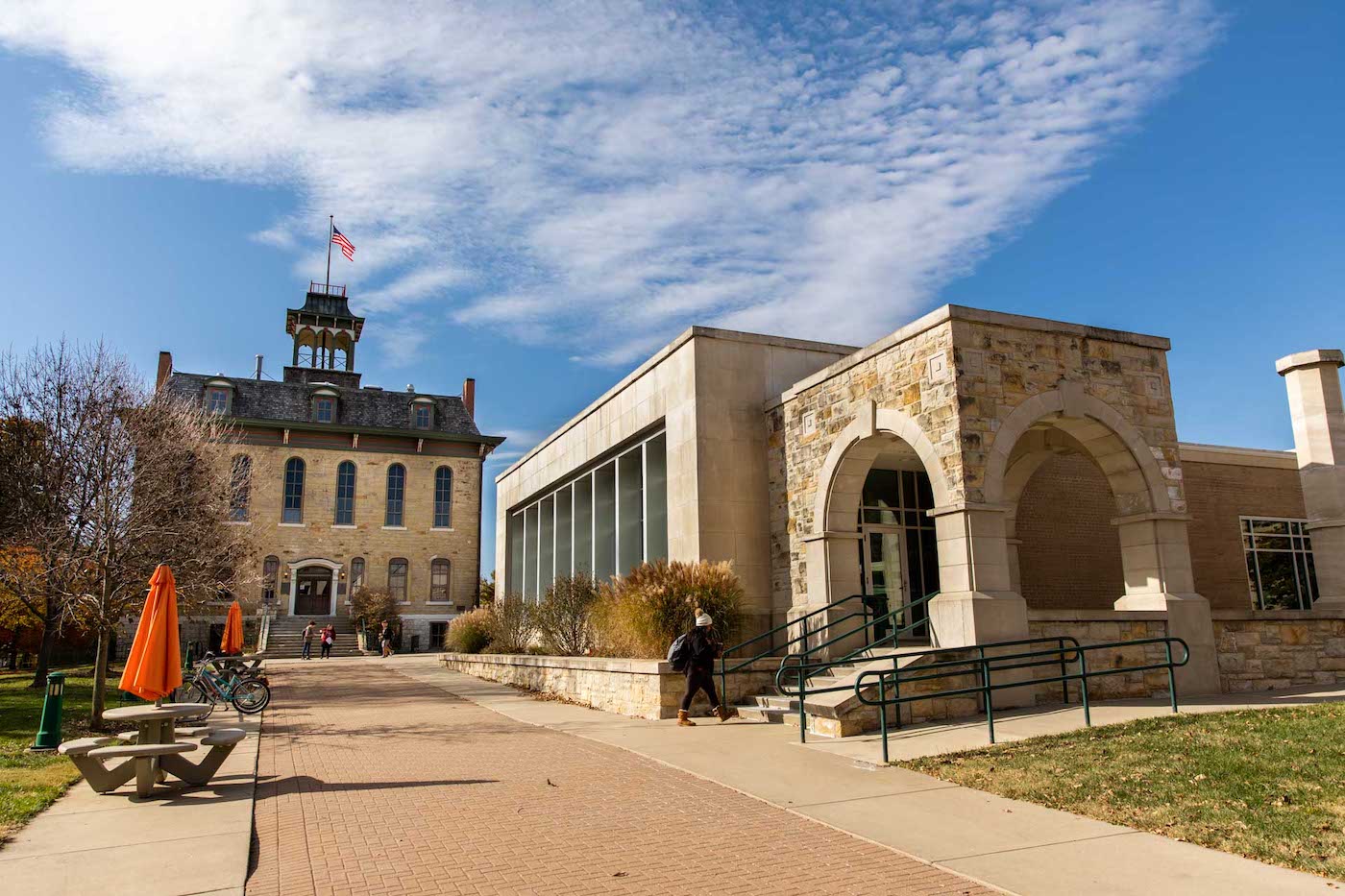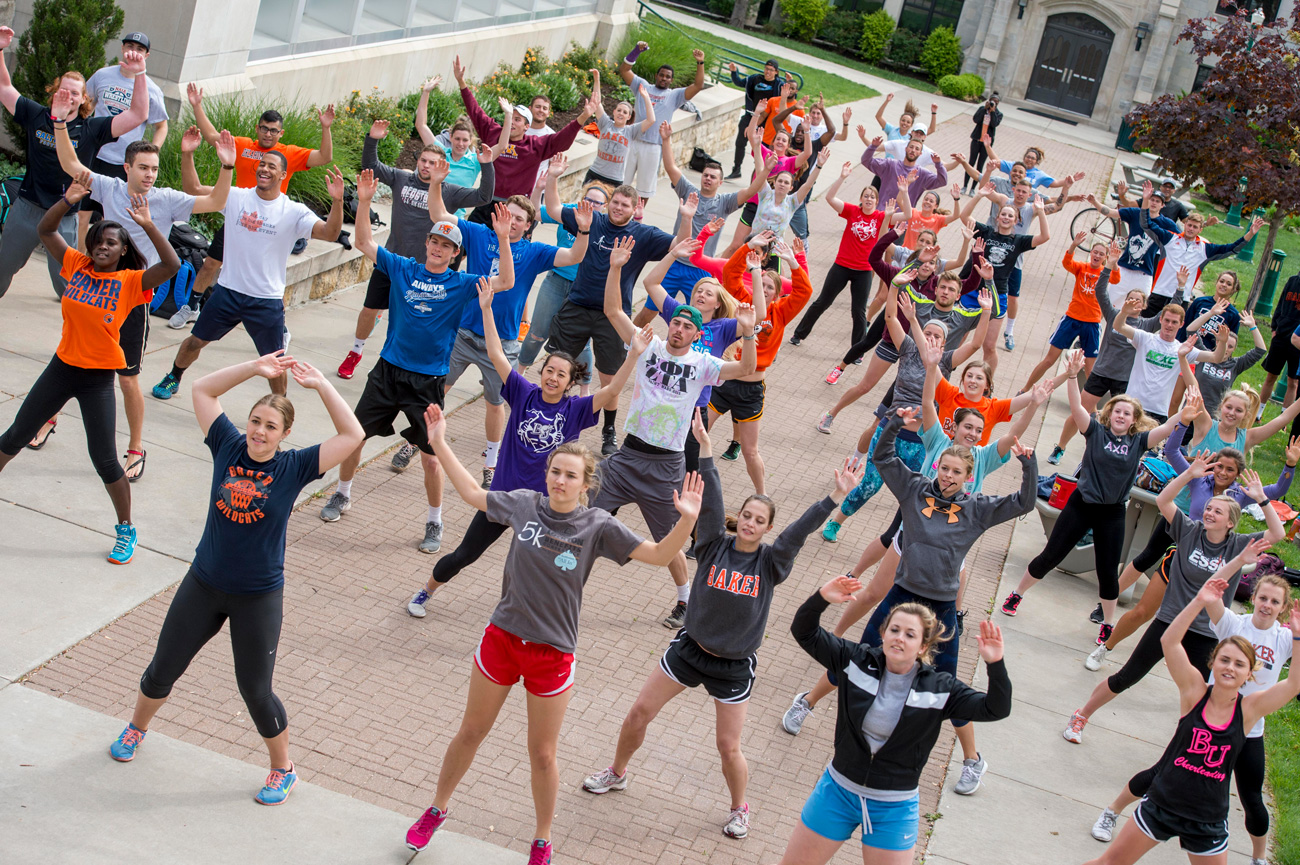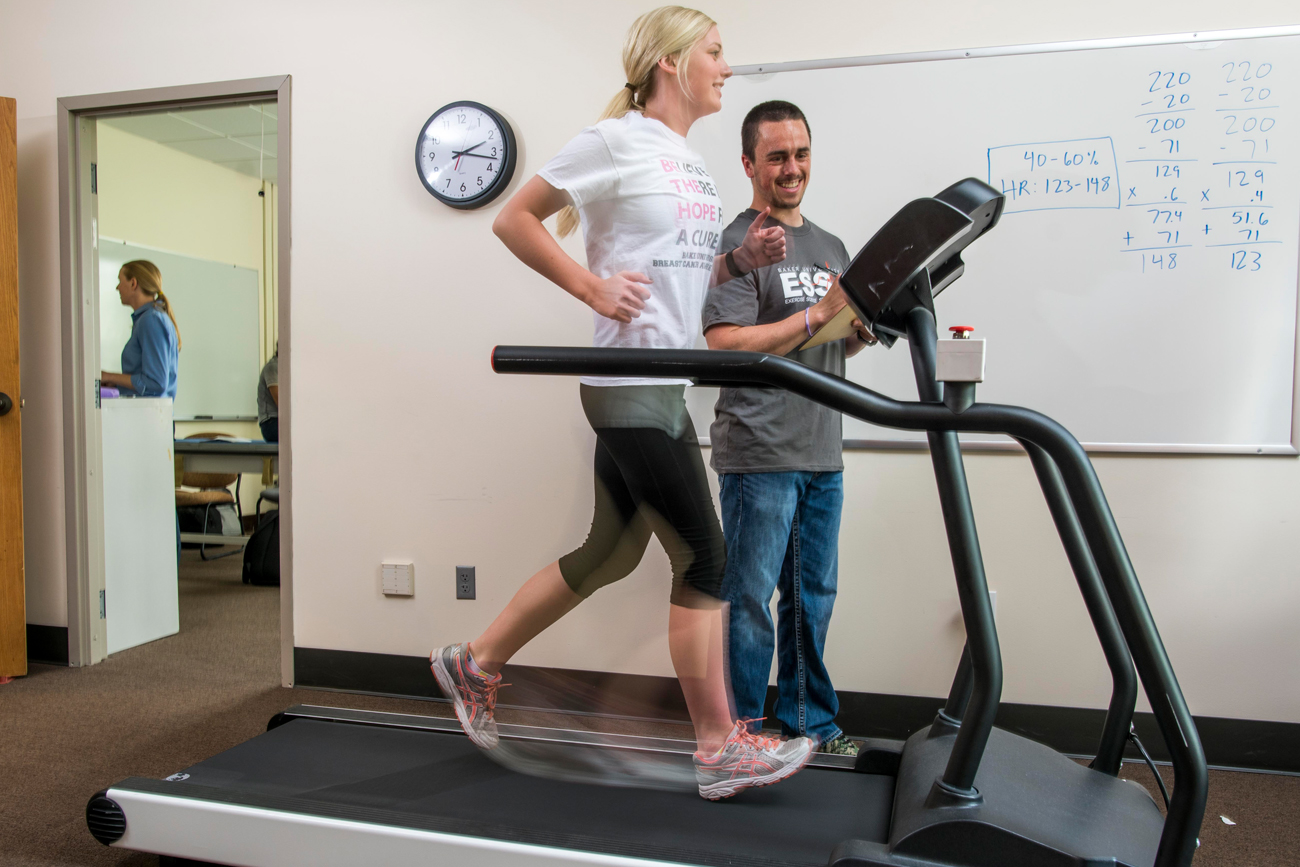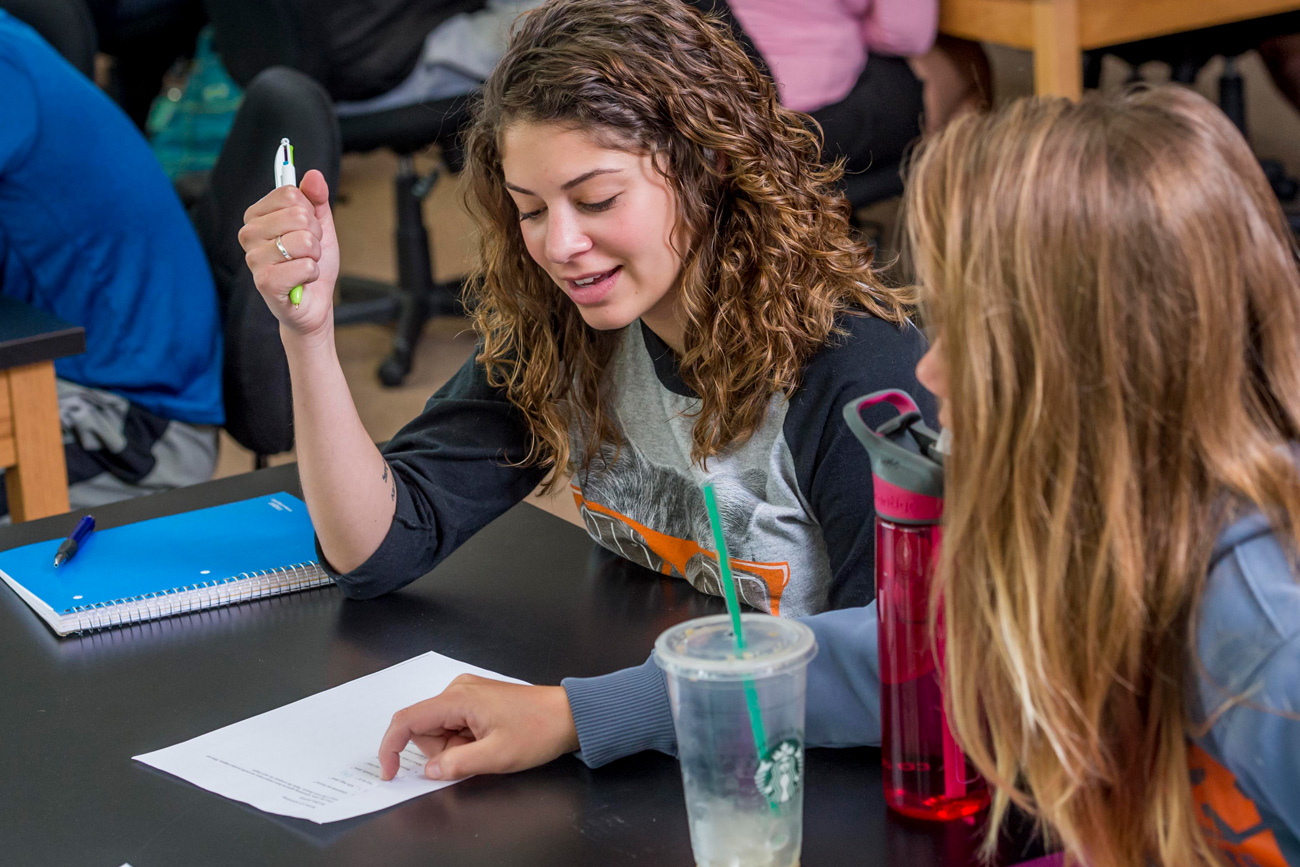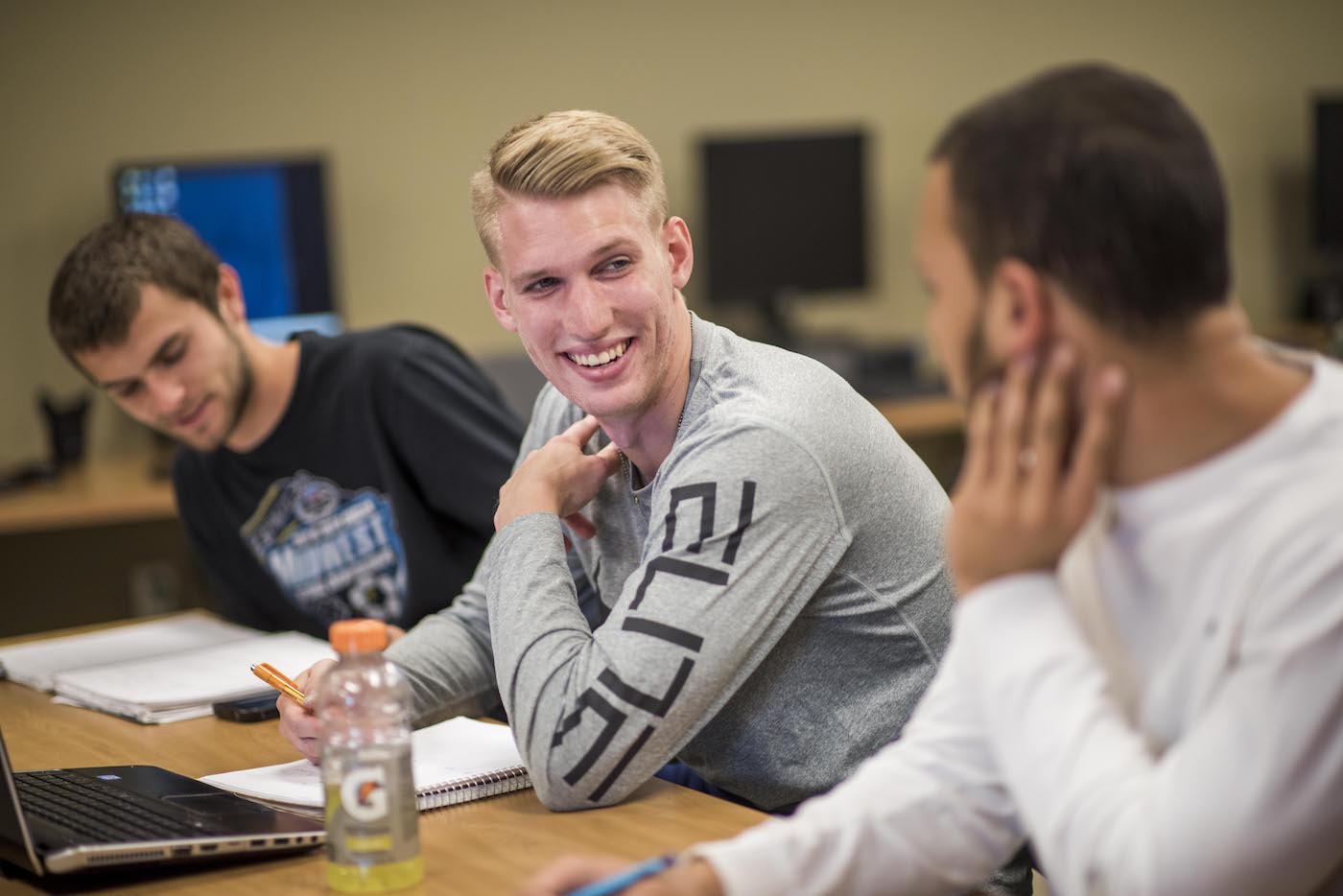EX 184 – Lifetime Fitness
This course examines factors which affect a person’s overall health and fitness across the lifespan. Students will conduct a variety of assessments intended to determine their current level of fitness and will examine ways to incorporate fitness into their daily lives. (3 credit hours)
EX 245 – Human Nutrition
This course is an introduction to the fundamentals of human nutrition as related to growth, development, and the maintenance of good health. In addition to nutritional theory, students learn to analyze and plan nutritional regimes. This course is required for admission to most nursing schools and majors in several allied health science fields. (3 credit hours)
PE 210 – Introduction to Teaching Physical Education and Health
This course content includes instruction in the social, historical, and philosophical foundations of physical education, as well as components of lesson design. Course emphasis is placed on professional attitudes crucial for those working with young people: awareness of the value of physical education and health, respect for all students, acceptance of diversity and its impact on learning, and an awareness of the teacher’s role as the facilitator of student learning. The course will focus on the psychomotor, cognitive, and affective development of learners PreK-12. The use of technology will be embedded in the content of this course. Pre- or co-requisite: ED 100. (2 credit hours)
PE 240 – Techniques of Teaching Team Sports
Students will gain knowledge of teaching techniques for team sports traditionally found in physical education curricula. Rules of sport, strategy of team play, and individual skill performance are components of the course. Prerequisite: ED 100. Pre- or co-requisite: PE 243. (3 credit hours)
PE 241 – Techniques of Teaching Individual and Dual Sports
This course provides students with the skills to teach individual and dual sport activities traditionally found in physical education curricula. Rules of sport, strategy of team play, and skill performance are components of the course. Prerequisite: ED 100. Pre- or co-requisite: PE 243. (3 credit hours)
PE 303 – Methods of Teaching Early Childhood and Elementary Physical Education and Health
This course is a study of the principles related to the selection and use of teaching techniques for early childhood and elementary physical education and health. This includes understanding the values of physical activity for the promotion of healthy lifestyles, current trends in elementary physical education and health instruction, planning for instruction at the elementary level, providing a safe learning environment, and assessing student learning. The course will include the development of lesson plans, unit plans, and measurement techniques along with effective teaching skills for the elementary physical education and health classroom. The course will also include a field experience component at the elementary level. The course will involve many activities related to teaching, including a) selecting instructional strategies that will enhance learning, b) designing and delivering lessons, c) technology applications, d) identifying student outcomes and appropriate assessments, e) teaching to diverse learners, and f) communicating with parents. In addition to class meeting times, candidates will also be required to participate in 20 clock hours of practicum experience. Prerequisites: PE 240 and PE 241 or permission of the instructor. (3 credit hours)
PE 305 – Methods of Teaching Secondary Physical Education and Health
This course is a study of the principles related to the selection and use of teaching techniques for secondary physical education and health in sixth grade through high school. This includes understanding the characteristics of secondary students, the values of physical activity for the promotion of healthy lifestyles, current trends in secondary physical education and health instruction, planning for instruction at the secondary level, providing a safe learning environment, and assessing student learning. The course will include the development of lesson plans, unit plans, and measurement techniques along with effective teaching skills for the secondary physical education and health classroom. The course will also include a field experience component at the secondary level. The course will involve many activities related to teaching, including a) selecting instructional strategies that will enhance learning, b) designing and delivering lessons, c) technology applications, d) identifying student outcomes and appropriate assessments, e) teaching to diverse learners, and f) communicating with parents. In addition to class meeting times, candidates will also be required to participate in 20 clock hours of practicum experience. Prerequisites: PE 240 and PE 241 or permission of the instructor. (3 credit hours)
PE 351 – Physiology of Exercise for Physical Education and Health
This course is a study of how the human body responds to exercise and sports performance. Content that will be covered during this course includes: nutrition and the impact of a quality diet on human performance, stress (good and bad), aerobic and anaerobic movement, and the related areas of fitness such as strength, muscular endurance, body composition, and flexibility. Prerequisites: BI 246 and PE 327. Note: This course is not open to Exercise Science majors. (3 credit hours)
PE 439 – Internship for Recreation
BI 246 – Anatomy and Physiology I
This course is the first of a two-semester sequence in which human anatomy and physiology are studied using a body systems approach, with emphasis on the interrelationships between form and function at the gross and microscopic levels of organization. Human Anatomy and Physiology I is required for students in Exercise Science and Physical Education, and for pre-professional students in Nursing and other allied health sciences. The course covers the basic anatomical and directional terminology; homeostasis; cell biology; histology; skeletal, muscle, nervous, cardiovascular, and respiratory systems; and the digestive system and metabolism. There are three lecture and discussion sessions and one laboratory session each week. This course does not count towards a major or minor in Biology. Prerequisite: Sophomore status or instructor permission. (3 credit hours)
BI 246L – Anatomy and Physiology I (Lab)
BS 141 – Introduction to Business
The course is intended for first-year Business majors, students who are undecided about majoring in Business, and non-majors who wish to obtain a broad overview of the operation of the business enterprise and its role in U.S. and international commerce. The roles of business as supplier of goods and services, employer participant in public affairs, and civic partner will be examined. Basic business functions of accounting, management, marketing, finance, and human resources will be introduced. Career options in business are also presented. (3 credit hours)
CO 115 – Introduction to Communication Studies
This course serves as an introduction to the principles of public speaking and interpersonal communication. Topics covered include models of communication, perception, listening, language, non-verbals, small groups, and relationships. Speaking performances are a central activity of the course. (3 credit hours)
CO 242 – Interpersonal Communications
This course is a study of communication in one-to-one situations. Class sessions include exercises, role playing, and simulations. The goal of the course is improvement of communication and deepened self-awareness. (3 credit hours)
